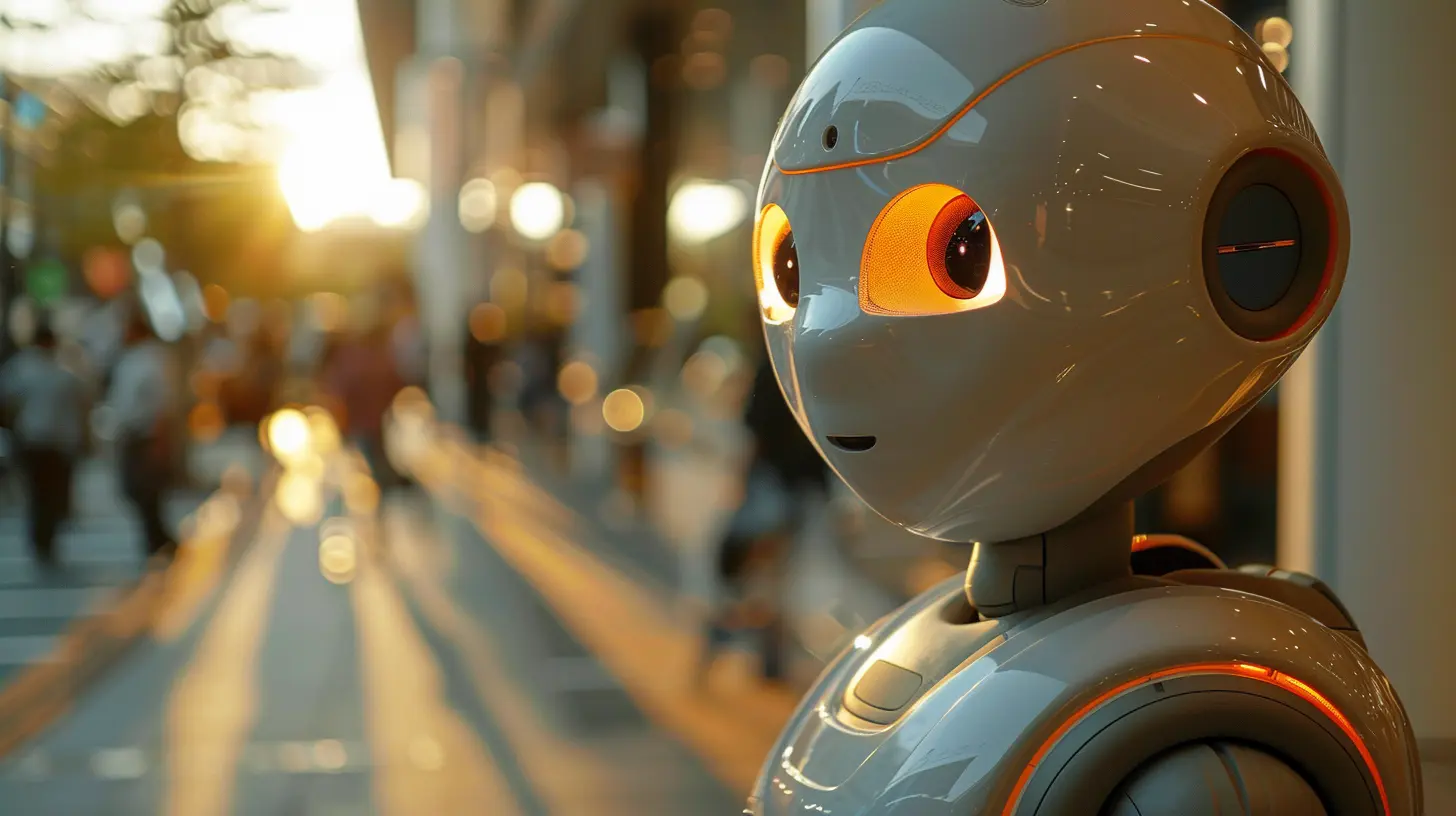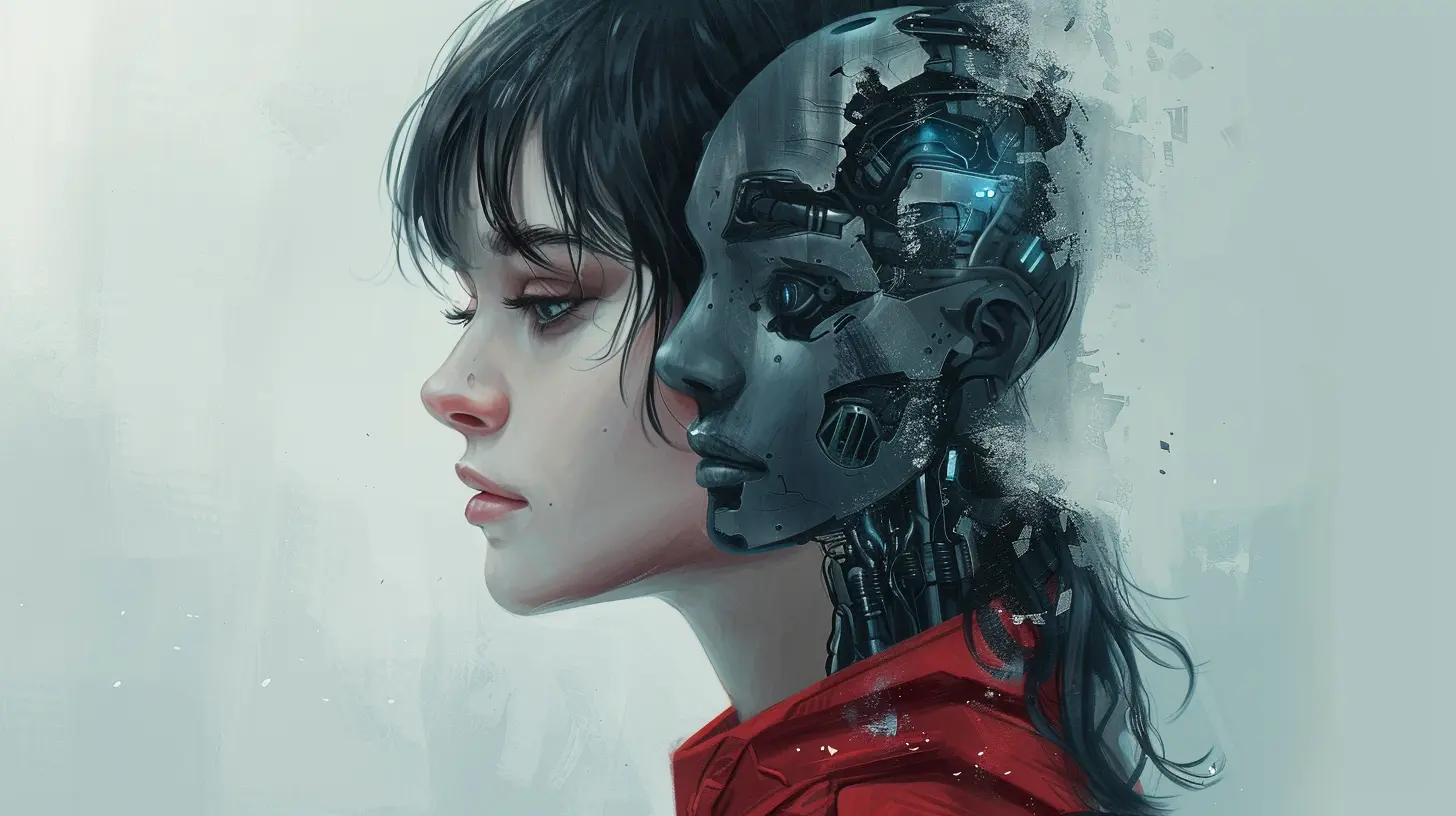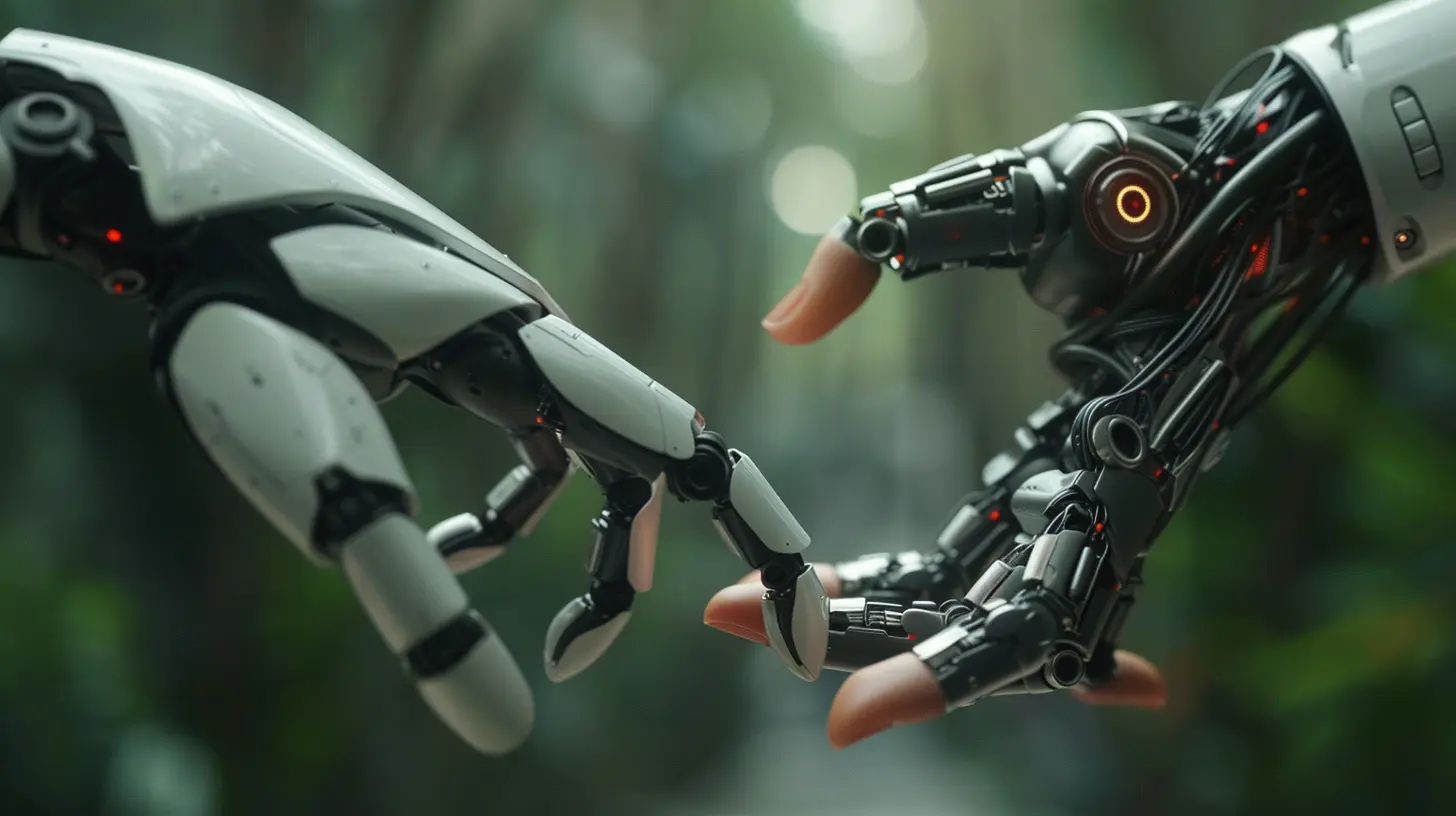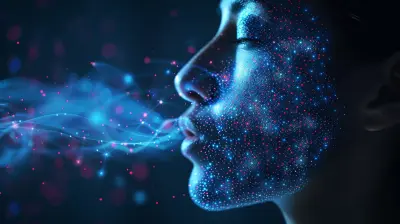The Ethics of AI in Mental Health Care: Friend or Foe?
10 May 2025
Artificial Intelligence (AI) has made its way into almost every facet of our lives, and mental health care is no exception. Whether you realize it or not, AI is slowly creeping into therapy sessions, online counseling, and even the apps you may use to track your mood. But here’s the burning question: Is AI a friend or foe when it comes to mental health care?
If you’re picturing robots replacing therapists or algorithms making decisions about people's mental well-being, you’re not too far off. The reality is, AI is complicated, and its role in mental health care is both promising and worrisome. On the one hand, AI can assist in diagnosing mental health disorders, offer round-the-clock support, and even help predict mental health crises before they occur. On the other hand, there are serious ethical concerns about privacy, the quality of care, and the potential for AI to lack the empathy that’s so crucial in human relationships.
So, is AI here to help or harm? Let’s dive deeper into the ethics of AI in mental health care and figure out whether it's a friend or foe.
What Exactly Is AI in Mental Health Care?
First off, let’s talk about what we mean when we say “AI in mental health care.” AI, or artificial intelligence, refers to machines that can mimic human cognitive functions such as learning, problem-solving, and pattern recognition. In the context of mental health, AI can come in various forms like chatbots, virtual therapy apps, and even machine learning algorithms that help diagnose and predict mental health issues.For example, you may have heard of chatbots like Woebot or Wysa that offer conversational therapy. These bots use natural language processing (NLP) to simulate a conversation with a real therapist. Then you’ve got machine learning algorithms that analyze data—like sleep patterns, social media activity, or even voice tones—to detect signs of depression or anxiety.
Sounds like the future, right? But while these technologies have the potential to revolutionize mental health care, they also come with a laundry list of ethical issues.
The Benefits of AI in Mental Health Care
Before we jump into the ethical concerns, let’s be fair and talk about the upsides. AI has some serious potential to make mental health care more accessible, efficient, and personalized.1. Accessibility
One of the biggest benefits of AI in mental health care is accessibility. Mental health services can be expensive and hard to come by, especially in underserved or rural areas. AI-powered tools, like therapy apps and chatbots, can offer immediate, low-cost support to those who might otherwise go without any care at all. That’s no small thing when you consider how many people struggle to access traditional therapy.Think about it—many people avoid therapy because of the cost or the stigma. But with AI apps, you can get support at any time, from anywhere, all at a fraction of the cost of traditional therapy.
2. 24/7 Availability
Another huge plus is that AI is available 24/7. Unlike human therapists who have office hours, AI can be there for you when you need it most—whether that’s at 3 AM when you can’t sleep or in the middle of a panic attack. This constant availability could help many people manage their mental health more effectively.3. Personalized Care
AI can analyze tons of data to offer personalized recommendations or treatments. Imagine an AI that could track your mood swings, sleep patterns, and even social interactions to give you a tailored treatment plan. This kind of real-time data analysis could lead to more precise diagnoses and interventions, potentially catching mental health issues before they escalate.4. Early Detection and Prevention
AI excels in pattern recognition, and this is especially useful in mental health care. Machine learning algorithms can analyze patterns in speech, text, or even physical data to detect early signs of depression, anxiety, or other mental health conditions. In some cases, AI can even predict a mental health crisis before it happens, giving people the chance to seek help before things get worse.
The Dark Side of AI in Mental Health Care: Ethical Concerns
Okay, so AI has its benefits. But let’s not get carried away. There are some very real ethical concerns we need to talk about—concerns that could make AI more of a foe than a friend.1. Lack of Empathy
Let’s get one thing straight—AI, no matter how advanced, doesn’t have feelings. It can analyze data, recognize patterns, and even mimic human conversation, but it doesn’t feel anything. And that’s a problem when it comes to mental health care, which often relies on empathy.Therapists don’t just listen to your problems; they connect with you on an emotional level. They pick up on subtle nuances in your tone of voice, body language, and facial expressions—things that AI, as sophisticated as it might be, can’t fully grasp. While AI can offer practical advice or coping strategies, it lacks the emotional intelligence that human therapists bring to the table.
2. Data Privacy
If you’re using an AI-powered mental health app, you’re likely sharing a lot of personal data—your mood, thoughts, and even intimate details about your life. This raises some serious questions about data privacy. Who owns this data? How is it being stored? And could it be sold or shared with third parties?Mental health data is incredibly sensitive, and a data breach or misuse of this information could have devastating consequences. Imagine your mental health history being leaked or sold to advertisers. Scary, right?
3. Bias in Algorithms
AI is only as good as the data it’s trained on. If the data is biased, the AI will be, too. This is a huge issue because mental health conditions don’t look the same for everyone. For example, studies have shown that AI systems can sometimes misdiagnose individuals from minority communities because the training data doesn’t include enough diversity.This lack of inclusivity can perpetuate existing inequalities in mental health care, making it harder for marginalized groups to get accurate diagnoses or appropriate treatment.
4. Over-reliance on AI
Another ethical concern is that people might start relying too much on AI for their mental health care. While AI can be a helpful tool, it shouldn’t replace human therapists. There’s a risk that people might settle for “good enough” care from an AI app instead of seeking out more comprehensive treatment from a licensed professional.And let’s be real—AI can make mistakes. If someone is in crisis, relying on an AI chatbot rather than seeking help from a human therapist could potentially lead to dangerous outcomes.
Can AI and Therapists Work Together?
While there are valid concerns, it’s important to note that AI doesn’t have to be an all-or-nothing proposition. In fact, the best approach might be a hybrid model where AI and human therapists work together.1. AI as a Supplement, Not a Replacement
AI can be a great tool to supplement traditional therapy, but it should never be a complete replacement for human interaction. Think of AI as a helpful assistant—something that can handle the more routine aspects of care, like tracking your mood or providing coping strategies, while leaving the deeper, more emotional work to human therapists.2. Collaborative Care
Some mental health apps are already starting to integrate AI with human therapists. For example, an app might use AI to analyze your mood data and then share that information with your therapist, helping them provide more personalized care. This kind of collaboration could enhance the effectiveness of treatment without sacrificing the human connection that’s so important in mental health care.The Future of AI in Mental Health Care
So, where do we go from here? AI is undoubtedly going to play a bigger role in mental health care, but it’s essential that we approach it with caution. Developers need to prioritize ethics, ensuring that AI tools are designed with empathy, privacy, and inclusivity in mind. At the same time, we, as consumers, need to be critical of the AI tools we use, making sure that they complement—not replace—human care.The ethics of AI in mental health care is a complex issue, and there’s no easy answer to whether AI is a friend or foe. Ultimately, it depends on how we choose to use these tools. If we use AI responsibly, as a supplement to human care, it could be a valuable ally in the fight for better mental health. But if we rely too heavily on it, we risk losing the very thing that makes therapy so powerful: human connection.
Conclusion: Friend or Foe?
So, is AI a friend or foe in mental health care? The answer isn’t black and white. AI has the potential to be an incredibly useful friend, offering accessibility, personalized care, and early detection of mental health issues. However, it also comes with very real risks, like a lack of empathy, data privacy concerns, and the potential for bias in algorithms.At the end of the day, AI is a tool. Whether it’s a friend or foe depends on how we choose to use it. The key is to strike a balance—leveraging AI for what it’s good at (data analysis, accessibility) while making sure the human element of mental health care remains front and center.
all images in this post were generated using AI tools
Category:
Ai EthicsAuthor:

Marcus Gray
Discussion
rate this article
4 comments
Troy McCabe
This article raises crucial points about AI's role in mental health care. While it offers benefits, ethical concerns must be carefully addressed to avoid harm.
May 14, 2025 at 11:57 AM

Marcus Gray
Thank you for your insightful comment! I agree that while AI has the potential to enhance mental health care, addressing ethical concerns is essential to ensure it benefits patients without causing harm.
Wren Vaughn
Great article! It's fascinating to see how AI can be both a helpful ally and a potential concern in mental health care. Embracing technology with ethical considerations can lead to innovative solutions and better support for those in need. Let's keep the convo going—AI can be a friend with the right guidance!
May 14, 2025 at 3:22 AM

Marcus Gray
Thank you! I completely agree—navigating the ethical landscape is key to harnessing AI's potential while ensuring it supports mental health care effectively. Let's continue this important conversation!
Phoenix Diaz
This article raises important questions about AI's role in mental health care. I'm curious about balancing technological advancements with ethical considerations—can AI truly enhance human empathy while safeguarding patient well-being?
May 11, 2025 at 3:45 AM

Marcus Gray
Thank you for your insight! Balancing AI advancements with ethical considerations is crucial. While AI can enhance accessibility and support, it must be carefully designed to prioritize human empathy and safeguard patient well-being.
Brooke Fuller
AI in mental health care: a double-edged sword! Sure, it can offer support, but let’s not forget—machines lack the human touch. Friend or foe? Depends on whether we value empathy over efficiency!
May 10, 2025 at 3:00 AM

Marcus Gray
Thank you for your insightful comment! You raise a crucial point—balancing the efficiency of AI with the irreplaceable human empathy in mental health care is essential for ethical implementation.



